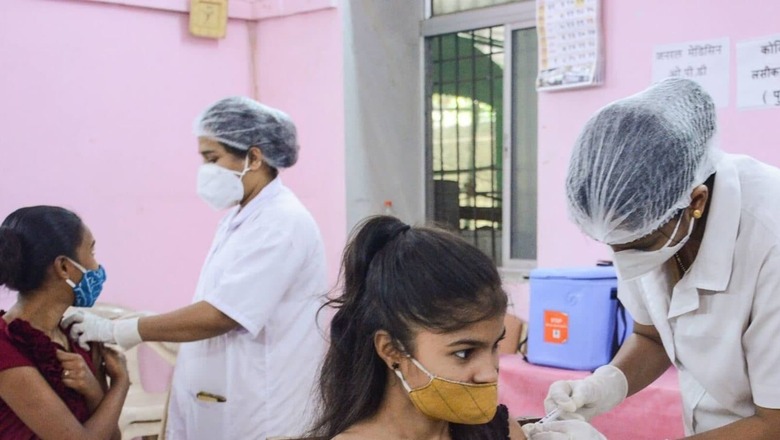
views
In order to make India “the Covid-19 vaccine powerhouse”, the government has gotten in touch with four sick Public Sector Undertakings (PSUs) to understand their resources and capacities to start the production, News18.com has learnt.
Hindustan Insecticides Limited (HIL), Bengal Chemicals and Pharmaceuticals Ltd (BCPL), Indian Drugs and Pharmaceuticals Limited (IDPL) and Hindustan Antibiotics Limited (HAL) have been called for discussions.
“The plan is at preliminary stages where we only want to understand the position of these pharma PSUs in terms of resources and capacities,” a senior official from the ministry told News18.com.
According to the officials privy to the development, the idea was first floated by Union health minister Mansukh Mandaviya.
“He (Mandaviya) sees India as a powerhouse of Covid-19 vaccination. While India has vaccinated the majority of its population, the country still has many other vaccine candidates in Phase 2 and Phase 3,” the officer said while explaining that India could help several countries across the globe by supplying Covid-19 vaccines to them.
The vaccine contenders in the pipeline include mRNA vaccine from Gennova, Serum Institute of India’s Covovax, Biological E’s Corbevax, Johnson & Johnson’s single shot vaccine, recombinant protein based vaccine from Reliance Life Sciences and Zydus Cadila’s ZyCoV-D, besides already available Covishield and Covaxin.
“Once done with vaccinating and boosting our population, we can easily export and help the nations across the globe to eradicate Covid-19,” the official said.
He further observed that since the state of art in these PSUs is “not encouraging”, the government is simultaneously looking for other private partnerships. “In the preliminary discussions, it seems that revival will require a huge amount of investment,” he added.
PSUs in Poor Shape
HIL, formerly known as Hindustan Insecticides Ltd, falls under the Department of Chemicals & Petrochemicals, Ministry of Chemicals & Fertilizers. The company was incorporated in 1954 with the objective of supplying DDT for National Malaria Eradication Programme launched by the government.
DDT is a chemical – dichlorodiphenyltrichloroethane – used for spraying to prevent Malaria.
While the firm has diversified into agro pesticide products and claims, at the company’s website, that its turnover is Rs 417.70 crore for 2019-2020, the official quoted above said the company has no expertise in the production of vaccines.
According to reports, NITI Aayog has recommended closing HIL.
The Indian Drugs and Pharmaceuticals Limited (IDPL), once touted as Asia’s biggest antibiotics plant and India’s biggest pharmaceutical company, is facing a severe cash crunch, according to reports. While many attempts have been made to revive IDPL, which was declared sick by the Board for Industrial and Financial Reconstruction in 2021, former minister of chemicals and fertilizers DV Sandanada Gowda had informed Lok Sabha that the government had taken a decision to close IDPL.
In 2019, the Union cabinet had also approved loans of Rs 330.35 crore to three state-owned pharma companies, including IDPL and Hindustan Antibiotics Ltd to help them clear employees’ liabilities.
Of the Rs 330.35 crore, Rs 158.35 crore was given to clear unpaid salary and Rs 172 crore for meeting the VRS liability.
Meanwhile, the Bombay High Court on January 22 had ordered the HAL to pay gratuity dues to 470 retired employees.
Read all the Latest India News here


















Comments
0 comment